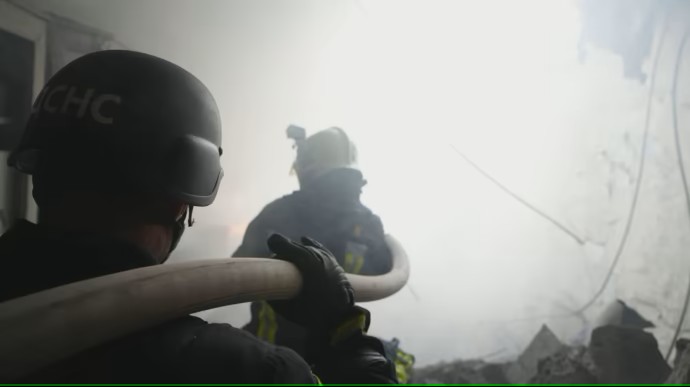On August 28, 2024, an emergency meeting of the NATO-Ukraine Council was convened in Brussels at Ukraine’s request. This important meeting was organized in response to recent large-scale Russian attacks that caused significant damage to Ukraine’s civilian infrastructure and resulted in human casualties. On August 26 and 27, Russian forces targeted energy facilities, infrastructure, and civilian buildings across 15 regions of Ukraine. These attacks led to the deaths of at least 11 people, including children, and brought about widespread destruction to key energy infrastructure throughout the country.
The aggression by Russia continued on August 28 when Russian forces shelled Kryvyi Rih. The ballistic attack on the city inflicted significant damage on civilian infrastructure, including two schools, several residential buildings, transportation facilities, administrative buildings, and a vocational school. As a result of this strike, 9 people were injured, and more than 230 vehicles were damaged. These attacks underscore the ongoing threat to Ukraine’s civilian population and raise serious concerns on the international stage.
The upcoming NATO-Ukraine Council meeting will address the need to revise the allies’ policy on the use of long-range weapons provided to Ukraine. Several NATO countries, including the United Kingdom, France, Sweden, Finland, the Baltic states, the Netherlands, Poland, the Czech Republic, and Canada, have already expressed support for Ukraine’s use of these weapons to strike Russian military targets, citing Ukraine’s right to self-defense under international law.
However, despite this support, the United States continues to impose restrictions on the use of provided weapons for strikes on Russian territory. U.S. Air Force Major General Pat Ryder confirmed that the U.S. policy remains unchanged: American weapons may be used by Ukraine only for defense against attacks from Russian territory and not for long-range strikes deep into Russian territory.
Interestingly, the United Kingdom discreetly supports the idea of using Storm Shadow missiles for strikes on Russian territory but is concerned about potential complications in relations with the United States, as this missile is a joint development between the UK and the US, and its use requires approval from Washington.
Ukraine is also actively enhancing its defense capabilities, including the development of new weapons. Recently, the country unveiled the ‘Palyanytsia’ missile drone, designed to strike a range of targets, such as ammunition depots and aircraft on runways. Additionally, Ukraine has tested its first ballistic missile, highlighting its efforts to strengthen its own defense forces and reduce reliance on external aid.
International support for Ukraine is crucial for protecting the civilian population and maintaining stability in Europe. Allies must continue to provide comprehensive assistance to Ukraine, including reconsidering restrictions on the use of supplied weapons, so that Ukraine can effectively defend itself against aggression and restore its territorial integrity. The pursuit of a just and lasting peace is in the interest of the entire international community, as Russia’s aggressive actions threaten not only Ukraine but also the security of the entire region.

